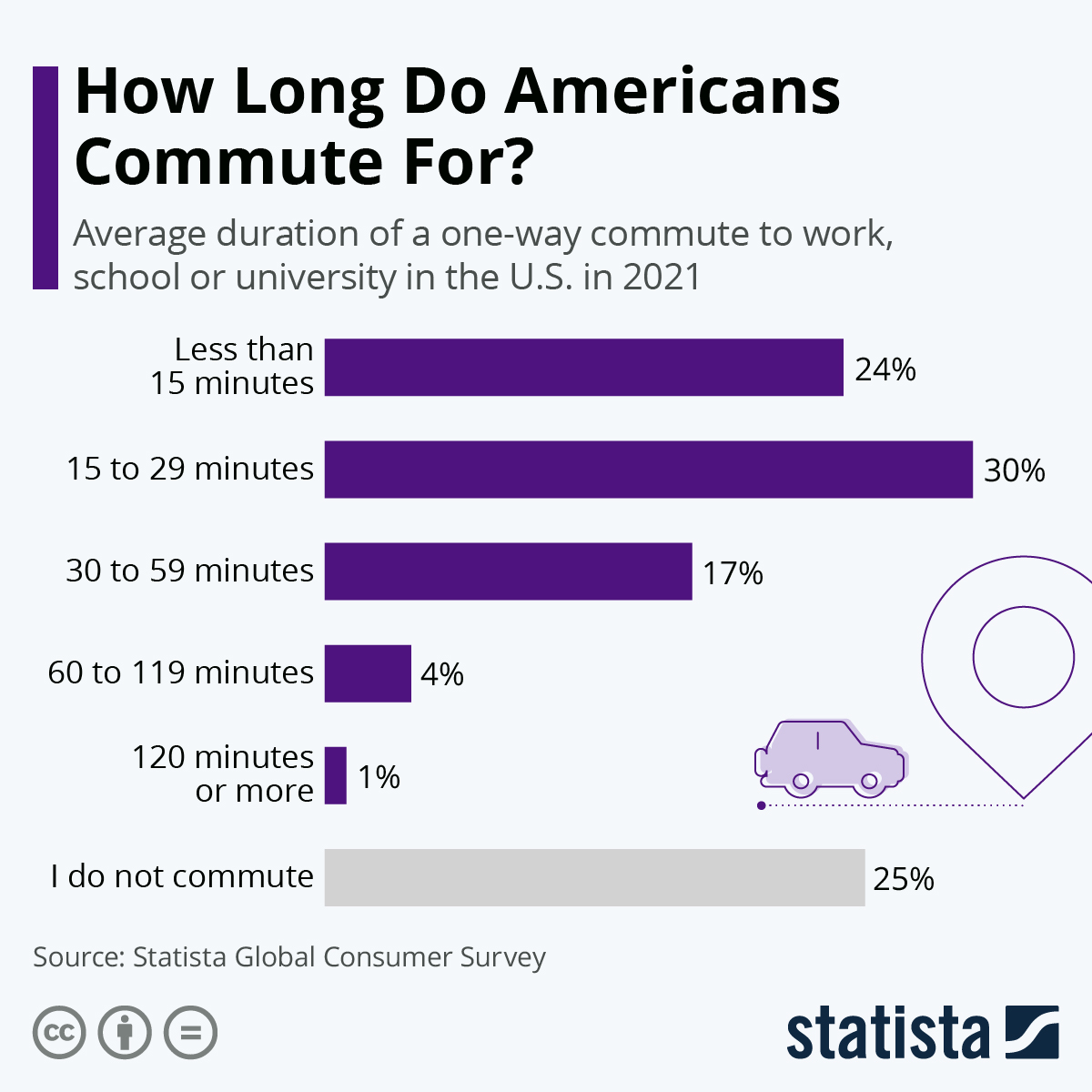For many Americans, the arduous morning commute became a thing of the past as Covid-19 forced people to embrace remote working. That has had both benefits and drawbacks with many employees missing an office environment where they could work closer with their colleagues and complete their tasks without distraction with homeschooling and childcare putting huge pressure on families. Many workers will also readily admit that they miss all those morning chats around the coffee machine or afternoon banter at the water cooler.
Other people will say they prefer home office for added flexibility and the chance to avoid commuting, saving time. Avoiding the need to navigate across a busy city can free up more time for employees to complete their tasks, reduce expenditure on gas and ensure people have extra time to rest before and after a busy work day. So how much time would the elimination of commuting save Americans?
According to the Statista Consumer Survey, 24 percent of Americans have a one-way commute to work, school or university of 15 minutes or less while 30 percent have to travel between 15 and 29 minutes. Taking the return journey into account, that could save American workers who are able to work remotely nearly one hour in travel time each day. A further 17 percent of U.S. workers commute for a timespan of between 30 and 59 minutes while four percent are forced to travel for anywhere between 60 and 119 minutes.





















